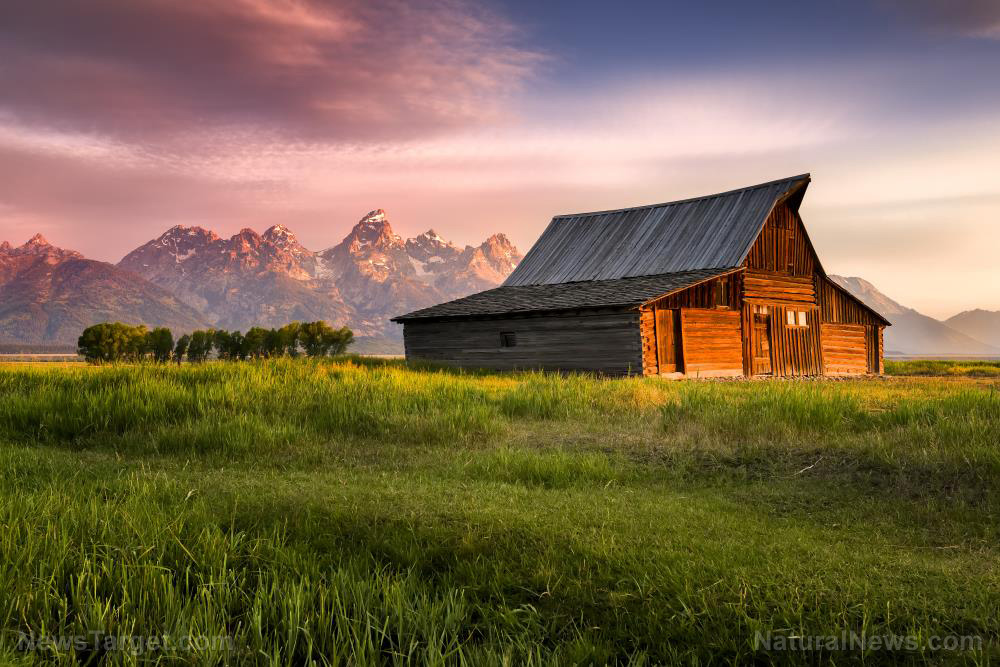
While most people see dead lands after prolonged droughts, the trained eyes see things that can make them survive.
A sunbaked land where nothing seems to be growing can actually be loaded with tiny superfoods. It can have mustards, lamb's quarter (a type of wild spinach), curly dock (related to rhubarb), wild amaranth, chia, stinging nettles, white sage, black sage, etc.
Foods are everywhere – but people don't recognize them in seed form
People normally don't recognize them when they're in seed form. Seeds are a concentration of all the nutrients a young plant will need to grow. They're an essential part of the native diet. More than 100 edible seeds were collected by various tribes on the West Coast during pre-Columbian times.
In modern times, you can probably add another 50 seeds from non-native plants, such as curly dock, several types of lamb's quarter, chervil, amaranth, sedge and more. Native people used them to make various types of mush called pinole. The flavors were fantastic and the pinole was a full meal in itself that could provide you with good nutrition and energy during the day.
Another use of seed was to create a type of energy superfood by mixing wild seeds, sugar, nuts and wild berries. Seeds were sometimes hidden and stored for future use. In more primitive societies, seeds were so valuable that they were sometimes used as a type of money or unit of exchange.
In terms of nutrition, seeds have very definite survival uses. They can be eaten, exchanged for goods or replanted for future uses. A large bag of stinging nettles or lamb's quarter seeds can provide a lot of edible wild greens in the spring. (Related: Food supply 101: Unusual sources of food when SHTF.)
Seeds have countless culinary applications. They can be used in mush or porridge, ground into flour and made into flatbreads, placed in stews or soups for added nutrition, used to create condiments such as mustard and used as an additive in delicious energy drinks.
Fennel, mustard, chervil and coriander seeds can be used as a flavoring agents. Seeds can also be medicinal. For example, milk thistle seeds are known to help support the liver.
Harvesting and storing seeds to make sure you have food available after SHTF
There are several methods of harvesting seeds. Very often, it's a matter of experimenting with the most efficient way to do it. To collect mustard seeds, you may place the dried stems that are loaded with seed pods in a plastic bag. You can beat and crush the contents using a stick or your hand. The seeds and shafts collect at the bottom of the bag.
Cut a little hole at the bottom of the bag afterward, and let everything trickle into a large bowl or bucket. Pour the content back and forth from one bucket to another in the wind. The shafts will blow away, and you will end up with mostly seeds.
Some other seeds are better collected by hand, while others are collected on location by beating the seed pods with a paddle into a large container or basket. All the seeds you manage to harvest should be stored in a cool and dry place. Some seeds can contain a lot of oil and go rancid if improperly stored.
Some like to place wild seeds into their freezer for a few hours. This might work well for culinary uses, but it's probably not a viable procedure if you want to use the seeds later for planting and growing food.
As with any wild food, you must properly identify the plants and seeds before using them. Some seeds can be extremely toxic or deadly.
Harvesting seeds from wild edibles is a great way to make sure you have food available during times of adversity. Learn to identify and harvest wild edibles and don't forget to save their seeds.
You can also have an emergency seed bank to put together a bunch of different kinds of seeds, seal them in a container and put them on the shelf so that you can grow a garden if food becomes scarce.
The better emergency food strategy is to grow a garden as part of a day-to-day lifestyle, and to save seeds so that they can become locally adapted.
Seed banks generally prolong the life expectancy of the seeds. Longevity seems mostly about storing seeds dry, not exposing them to high temperatures and avoiding bugs and animals. If you live in a damper environment, include a desiccant with the seeds before storing. Desiccant is a hygroscopic substance that is used to induce or sustain a state of dryness in its vicinity.
Follow FoodFreedom.news for more news on survival foods.
Sources include:
Please contact us for more information.























